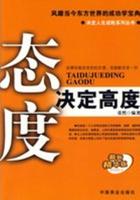He called them by the words they use on the veld, and the first star of morning he called the _voorlooper - the little boy who inspans the oxen - a name I had not heard for twenty years. Many a great yarn we spun in the long evenings, but I always went to bed with a sore heart. The longing in his eyes was too urgent, longing not for old days or far countries, but for the health and strength which had once been his pride.
one night I told him about Mary.
'She will be a happy _mysie,' he said, 'but you will need to be very clever with her, for women are queer cattle and you and I don't know their ways. They tell me English women do not cook and make clothes like our vrouws, so what will she find to do? I doubt an idle woman will be like a mealie-fed horse.'
It was no good explaining to him the kind of girl Mary was, for that was a world entirely beyond his ken. But I could see that he felt lonelier than ever at my news. So I told him of the house Imeant to have in England when the war was over - an old house in a green hilly country, with fields that would carry four head of cattle to the Morgan and furrows of clear water, and orchards of plums and apples. 'And you will stay with us all the time,' I said.
'You will have your own rooms and your own boy to look after you, and you will help me to farm, and we will catch fish together, and shoot the wild ducks when they come up from the pans in the evening. I have found a better countryside than the Houtbosch, where you and I planned to have a farm. It is a blessed and happy place, England.'
He shook his head. 'You are a kind man, ****, but your pretty _mysie won't want an ugly old fellow like me hobbling about her house ... I do not think I will go back to Africa, for I should be sad there in the sun. I will find a little place in England, and some day I will visit you, old friend.'
That night his stoicism seemed for the first time to fail him. He was silent for a long time and went early to bed, where I can vouch for it he did not sleep. But he must have thought a lot in the night time, for in the morning he had got himself in hand and was as cheerful as a sandboy.
I watched his philosophy with amazement. It was far beyond anything I could have compassed myself. He was so frail and so poor, for he had never had anything in the world but his bodily fitness, and he had lost that now. And remember, he had lost it after some months of glittering happiness, for in the air he had found the element for which he had been born. Sometimes he dropped a hint of those days when he lived in the clouds and invented a new kind of battle, and his voice always grew hoarse. Icould see that he ached with longing for their return. And yet he never had a word of complaint. That was the ritual he had set himself, his point of honour, and he faced the future with the same kind of courage as that with which he had tackled a wild beast or Lensch himself. Only it needed a far bigger brand of fortitude.
Another thing was that he had found religion. I doubt if that is the right way to put it, for he had always had it. Men who live in the wilds know they are in the hands of God. But his old kind had been a tattered thing, more like heathen superstition, though it had always kept him humble. But now he had taken to reading the Bible and to thinking in his lonely nights, and he had got a creed of his own. I dare say it was crude enough, I am sure it was unorthodox; but if the proof of religion is that it gives a man a prop in bad days, then Peter's was the real thing. He used to ferret about in the Bible and the_Pilgrim's _Progress - they were both equally inspired in his eyes - and find texts which he interpreted in his own way to meet his case. He took everything quite literally. What happened three thousand years ago in Palestine might, for all he minded, have been going on next door. I used to chaff him and tell him that he was like the Kaiser, very good at fitting the Bible to his purpose, but his sincerity was so complete that he only smiled. Iremember one night, when he had been thinking about his flying days, he found a passage in Thessalonians about the dead rising to meet their Lord in the air, and that cheered him a lot. Peter, I could see, had the notion that his time here wouldn't be very long, and he liked to think that when he got his release he would find once more the old rapture.
Once, when I said something about his patience, he said he had got to try to live up to Mr Standfast. He had fixed on that character to follow, though he would have preferred Mr Valiant-for-Truth if he had thought himself good enough. He used to talk about Mr Standfast in his queer way as if he were a friend of us both, like Blenkiron ... I tell you I was humbled out of all my pride by the Sight of Peter, so uncomplaining and gentle and wise. The Almighty Himself couldn't have made a prig out of him, and he never would have thought of preaching. Only once did he give me advice. I had always a liking for short cuts, and I was getting a bit restive under the long inaction. One day when I expressed my feelings on the matter, Peter upped and read from the_Pilgrim's _Progress: 'Some also have wished that the next way to their Father's house were here, that they might be troubled no more with either hills or mountains to go over, but the Way is the Way, and there is an end.'
All the same when we got into March and nothing happened Igrew pretty anxious. Blenkiron had said we were fighting against time, and here were the weeks slipping away. His letters came occasionally, always in the shape of communications from my aunt.














